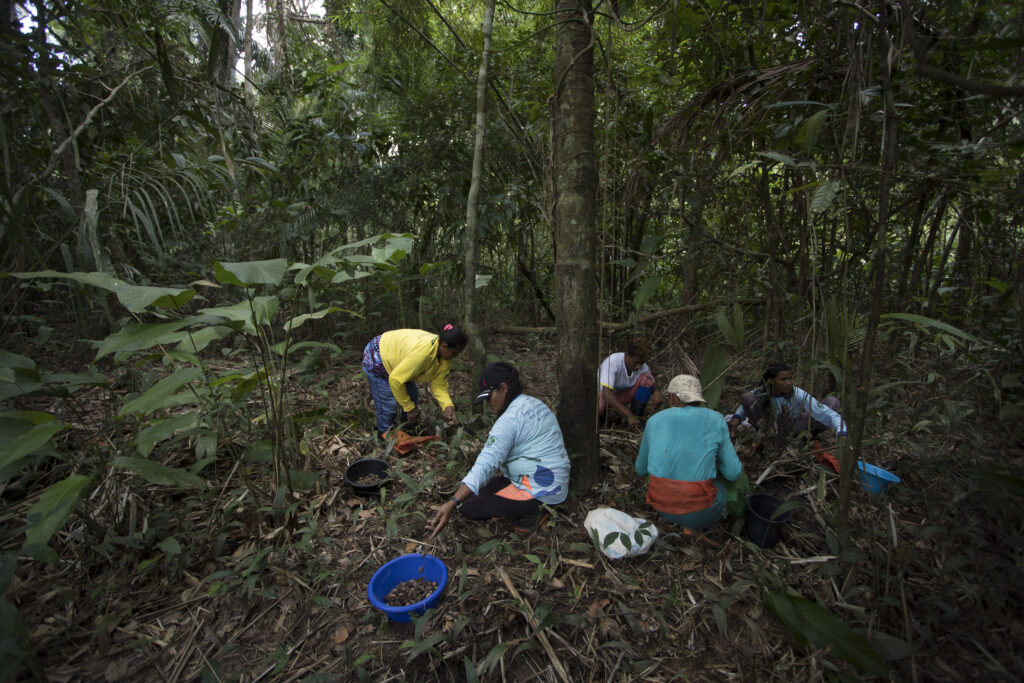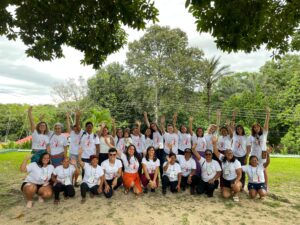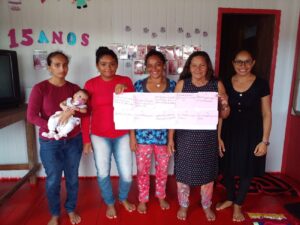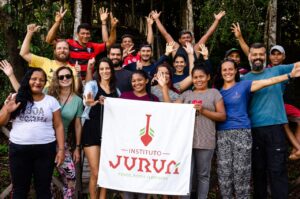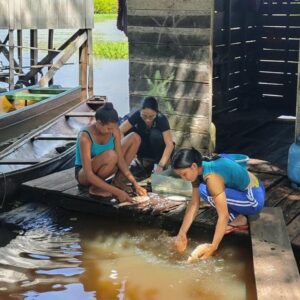By Maria Julia Ferreira
Translated by Bruna Favaro
Researchers from Instituto Juruá begin expeditions for the project “Understanding Global Value Chains in the Amazon”, whose main focus is to uncover the strategies used by people in the Amazon to add sustainable value to the collection of oilseeds. From this, we seek to understand the social and economic impacts of this activity on the lives of local communities and the ecological impact of seed harvesting for forests in the region of the Mid-Juruá river.
This October, a team of researchers headed to Carauari (AM) with two main goals: to meet with residents and local leaders, and to implement floristic plots to evaluate the ecological impact of the traditional harvesting of andiroba seeds (Carapa guianensis), murumuru (Astrocaryum murumuru) and ucuúba (Virola surinamensis), which are widely collected in the region for the production of vegetable oils for the cosmetic industry.
According to Andressa Bárbara Scabin, a researcher from Instituto Juruá, “It is extremely important to meet with local leaders to align the project objectives with the local demands and trace which communities are working more actively with the harvesting and sale of seeds.” This approach allows for better organization of fieldwork and also guarantees partnership with collectors, who are essential for the success of the project.
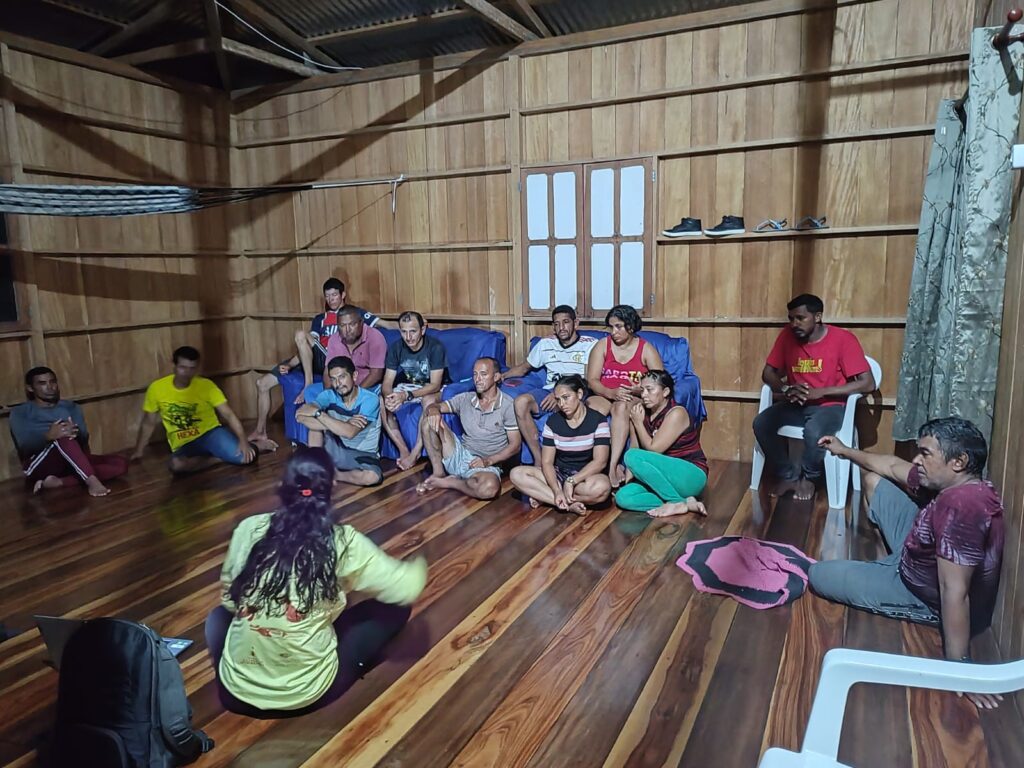
For this study, forest areas measuring 100 x 50 meters were chosen. They are located in seed harvesting sites, where the researchers, in partnership with community residents, mark all adult and juvenile trees, palms and seedlings of the three mentioned species. In addition to the location of trees and palm trees, the diameter of all of them is measured and the number of seedlings that are growing in these locations is counted. “This methodology allows us to see how much the trees will grow and how many new trees will germinate in the traditional harvesting areas over a period of time”, says Janaina Costa, a doctoral student at the Federal University of Rio Grande do Norte (UFRN) who is developing her final thesis alongside the project.
The team will monitor these plots for three years, as well as the same number of areas where traditional harvesting is not carried out. According to Andressa Scabin, “With this paired sampling, we can compare forest regeneration and growth in areas under the care of traditional residents and in areas without this valuable care.”
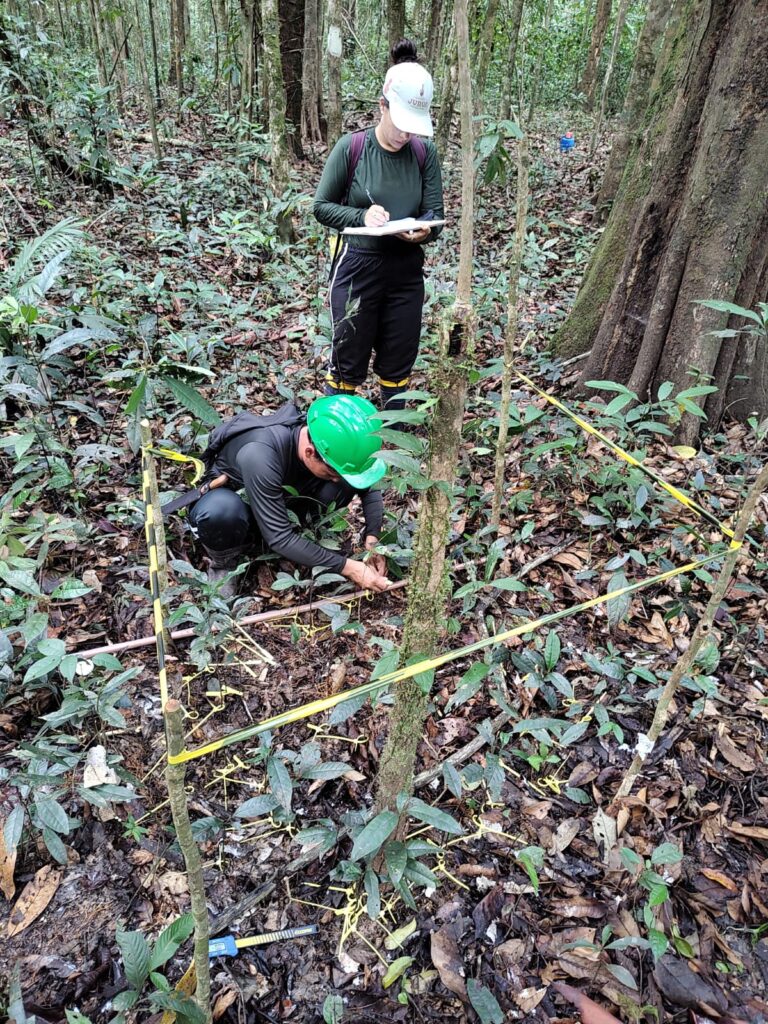
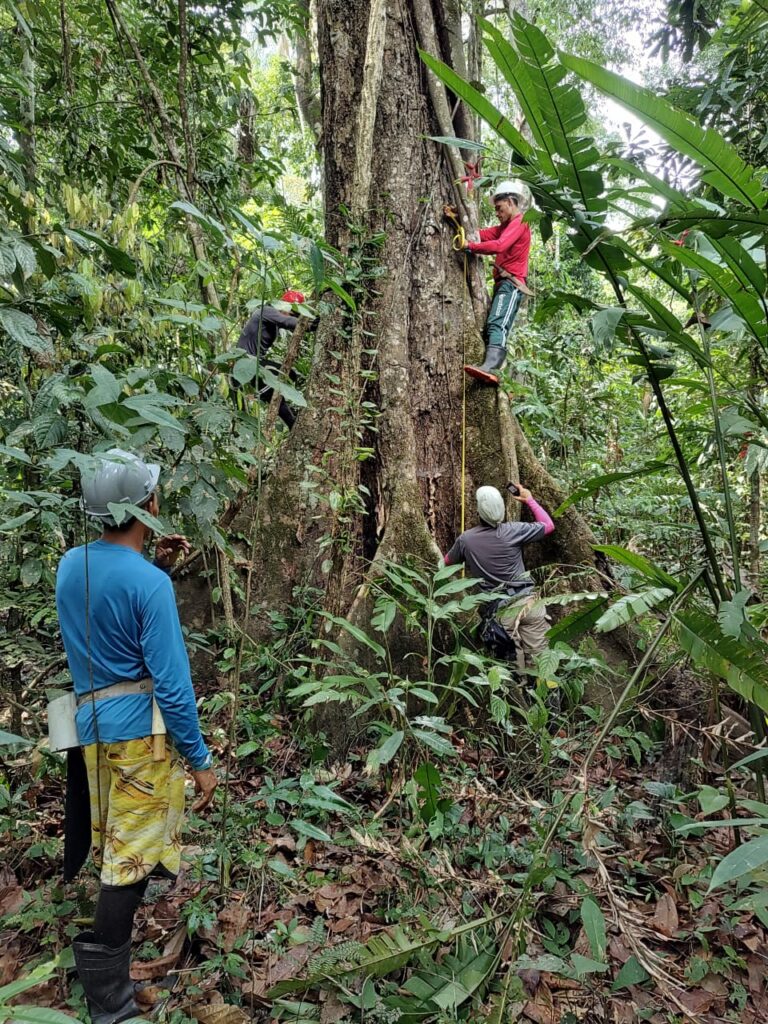
At the beginning of the next year, the researchers will return to the territory to monitor seed production in these same areas. Janaina Costa explains that “Seed collectors will be installed in some trees of reproductive age. In these collectors, we will count how many seeds are produced and, with this data, we can obtain an average of seed production in each harvest area.” This information will be matched with data on the quantity of seeds purchased by local organizations, by the Mixed Cooperative for Sustainable Development and Solidarity Economy of Mid-Juruá (CODAEMJ) and by the Association of Agroextractvist Residents of the Uacari Sustainable Development Reserve (AMARU). This will allow us to estimate how many seeds the forest produces and how many is actually collected by local residents.
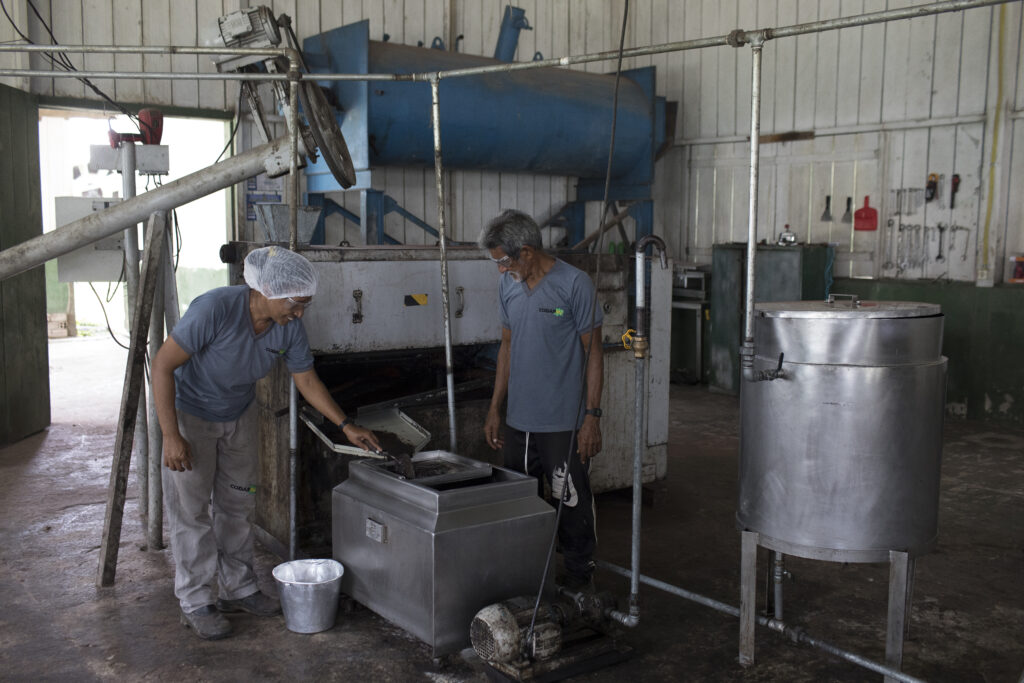
In the next expedition of the project, scheduled for the first half of 2024, the team will return to the communities to conduct interviews with seed collectors to understand how this activity influences these people’s income and quality of life. This analysis of the socioeconomic impact of the oilseed chain will also be taken from a gender perspective, in other words, how the impacts of this chain affect men and women.
“Considering that most of the people who collect seeds are women, at the same time that they are not necessarily the ones who benefit most from it, it is important that we understand these differences so as to strengthen the chain in order to bring greater gender equity in the benefits sharing”, says Andressa Scabin.
Therefore, Instituto Juruá hopes to obtain scientific data with this project, which showcases the economic, social and ecological importance of traditional seed harvesting and, with this, strengthen the vegetable oil production chain in the Mid-Juruá region.
